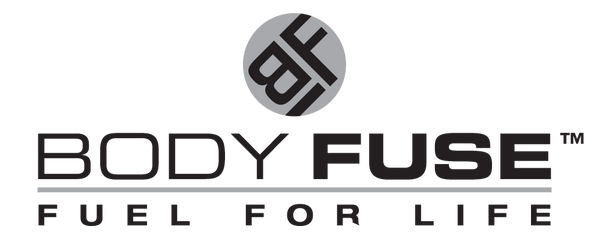Creatine is not just for men. When you hear creatine, you probably think of male bodybuilders, which makes sense, since it’s one of the most popular muscle growth supplements for men. Creatine is not just for men looking to build muscle. Research is increasingly underlining the benefits of creatine for women, particularly when it comes to building lean muscle.
If you spend at least a couple days of the week exercising, adding creatine to your diet can help you support your fitness goals. There are a couple different types of creatine, from creatine monohydrate, to creatine HCL, to magnesium creatine chelate. Here’s what you should consider as you start looking for the right creatine for you:
What is Creatine?
Creatine is an amino acid that our bodies store in our muscles and brain to use as a natural energy source. When our bodies need energy (like during exercise), they convert creatine into phosphocreatine, which fuels our muscles.
While creatine is available as a powdered supplement, you can also get it through natural food sources like organ meat (liver, heart, kidneys), red meat, pork, and fish. For vegans and vegetarians in particular who likely don’t get much creatine through their diets, a creatine supplement is a great way to support healthy levels in the body.
How does creatine affect women?
Creatine has been shown to help women build lean muscle, since it can help sustain higher energy levels throughout intense workouts like high intensity interval training or sprints. For women who already do high intensity training, creatine is a no-brainer.
Another study also revealed that creatine supplementation can help support mental clarity during a workout by improving oxygen uptake in the brain, which can make all the difference during mentally challenging workouts, like complex boxing or dance routines.
Can some women in particular benefit more from creatine?
Creatine has unique benefits for women over 50. The Journal of the International Society of Sports Nutrition found that, in addition to the cognitive benefits cited, creatine supplementation can help support healthy bones and skeletal muscle mass, which is a common concern that comes with aging.
In one study, a group of postmenopausal who were given creatine and asked to do resistance training showed increased physical function, lower limb lean mass, and overall improved quality of life. Many women over 50 also experience a loss in overall muscle mass due to age, which creatine, along with a consistent exercise routine, can help with.
Can women take creatine even if they're not working out?
While it’s most often used to support athletic performance, women who aren’t exercising regularly can still take creatine. And since creatine is naturally found in meat, vegetarians and vegans may want to consider supplementing with this amino acid on a daily basis.
Can creatine make women gain weight?
While people exercising for a variety of different reasons, many women exercise with the goal of losing weight. The stigma associated with creatine is that it is first and foremost a bulking supplement. The bulking stigma ends up dissuading many women from incorporating creatine into their diets.
The reality is more complicated. While creatine will not increase fat levels in a woman’s body, it can cause muscles to store more water, which can lead to water weight gain. It may also contribute to weight gain due to increased muscle mass. This gain is in the right direction, pushing up the resting metabolic rate causing more calorie burn just existing...making it easier to achieve a calorie deficit.
What's the best type of creatine for women?
When you’re looking for a creatine supplement, it’s important to choose one with high quality ingredients, like Body Fuse Cre-8. Cre-8 is highly bioavailable and is creatine HCL, as creatine Magna Power. Creatine HCL, vs creatine mono, is much more readily absorbed by the body.
When and how much creatine to take?
Cre-8 combines three of the most prolific muscle building ingredients. Creatine Magna Power has been heavily researched and proven in clinical studies to increase blood flow allowing more oxygen to be supplied to working muscles while at the same time expediting nutrient delivery. It is suggested to take creatine on training/workout days and off days. Just 5 grams per day has been shown to increase muscle growth, power and performance.
Like other vitamins and supplements, creatine is also most helpful when part of a consistent routine, so you should aim to take it daily. Adding it to your morning smoothie, juice, or protein recovery shake can help make that daily habit stick.



